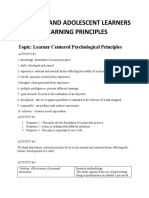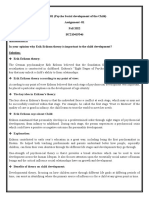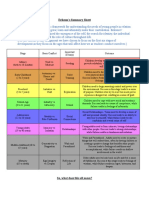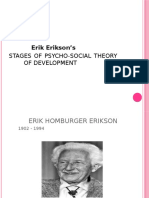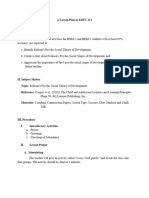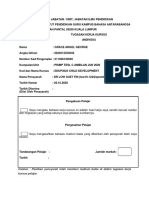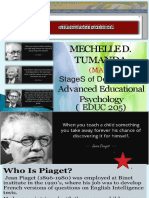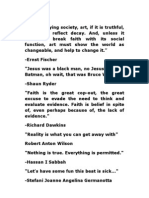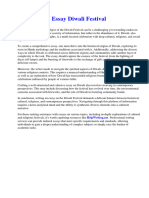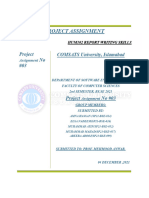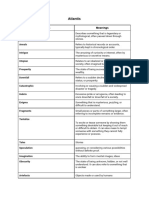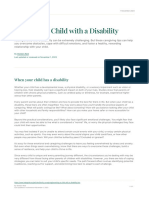Async Task 1
CHhild and Adolescent Psychology
1. "The frightening part about heredity & environment is that we, parents, provide both." - Discuss
the implications of this statement
-The statement "The frightening part about heredity & environment is that we, parents, provide both"
highlights the significant role parents play in shaping the lives of their children. It suggests that parents
have influence over both genetic traits passed down through heredity and the environment in which
their children are raised. The statement implies that parents bear a great deal of responsibility and
accountability for the development and well-being of their children. They are not only responsible for
the genetic makeup inherited by their children but also for creating a nurturing and supportive
environment that influences their growth and development. Genetic traits inherited from parents,
such as intelligence, temperament, and physical attributes, can influence various aspects of a child's
life. Additionally, the environment in which children are raised, including the family dynamics,
parenting style, socioeconomic status, and cultural influences, can significantly impact their
development. It acknowledges that parents are not just passive carriers of genetic material but active
contributors to the environment in which their children grow. Parents' actions, choices, values, and
parenting approaches directly impact the opportunities, experiences, and values instilled in their
children.
2. As future educators, how are you going to tell parents that they play a crucial role in the
development of their children. Concentrate on how they could contribute to their children's
favorable development by creating the environment conducive to development.
-As future educators, it is important for us to communicate to parents that they play a crucial role in
the development of their children. We can initiate open and frequent communication channels, such
as parent-teacher conferences, newsletters, or online platforms, to engage parents in their children's
education and development. By establishing a partnership based on mutual trust and respect, we can
effectively convey the importance of their role. Educating parents about child development and the
impact of their actions and the environment can empower them to make informed choices. We can
highlight how parents' attitudes, behaviors, and interactions at home significantly influence their
children's development. Encouraging parents to model positive values, healthy communication,
empathy, and problem-solving skills can create a favorable environment for children to learn and grow
and Emphasize the importance of creating a balanced lifestyle that includes quality family time, play,
and opportunities for social and emotional growth. Promote an inclusive and accepting environment
where children feel valued and supported, regardless of their differences or challenges.
3. In our lecture #2, we talked about theories that support child development, which
theory/theories do you think you can relate with in your development? Discuss your answer.
-Erik Erikson's theory of psychosocial development posits that individuals go through a series of stages
throughout their lives, each characterized by a unique psychosocial crisis or challenge. These stages
encompass both biological and social aspects of development and influence an individual's identity
formation and overall well-being. While Erikson's theory primarily focuses on the development of
children and adolescents, it can still relate to my personal development as I navigate through different
stages of life. Erikson's theory emphasizes the importance of identity formation, particularly during
adolescence. According to Erikson, the psychosocial crisis during this stage is the struggle between
identity versus role confusion. As an adolescent, I can relate to this stage as I navigate through
questions of self-identity, values, beliefs, and aspirations. Erikson's theory helps me understand that
this period of exploration and self-discovery is a normal part of development and that resolving this
crisis leads to a clear and coherent sense of identity. It highlights the significance of social
relationships throughout life. From early childhood to adulthood, we encounter different psychosocial
crises related to forming meaningful relationships, such as trust versus mistrust, intimacy versus
isolation, and generativity versus stagnation. These stages remind me of the importance of nurturing
positive and healthy relationships, building trust, and cultivating connections with others.
Understanding the impact of social interactions on my development can guide me in forming and
maintaining fulfilling relationships. The stages beyond adolescence, such as generativity versus
stagnation and integrity versus despair, highlight the importance of contributing to society, finding
purpose, and reflecting on one's life experiences. This aspect of Erikson's theory inspires me to
�embrace lifelong learning, seek opportunities for personal growth, and reflect on my life's journey to
find fulfillment and a sense of purpose. It reminds me of the importance of identity formation, the
impact of social relationships, the potential for lifelong learning, and the influence of contextual
factors on my journey of self-discovery and personal growth.







